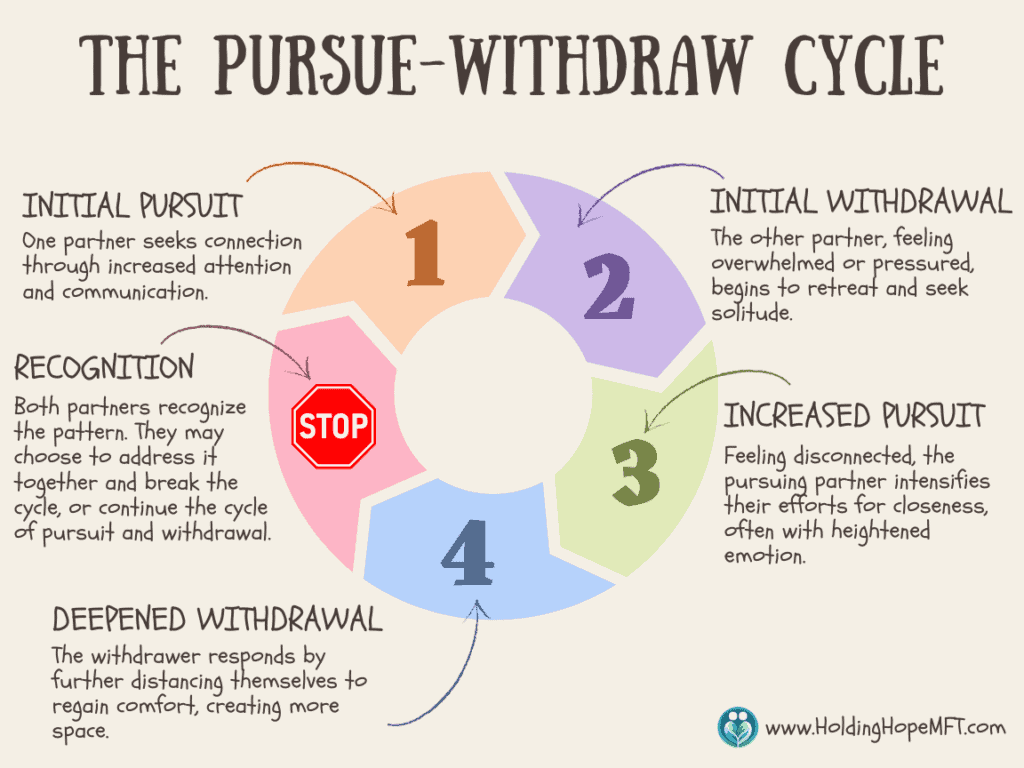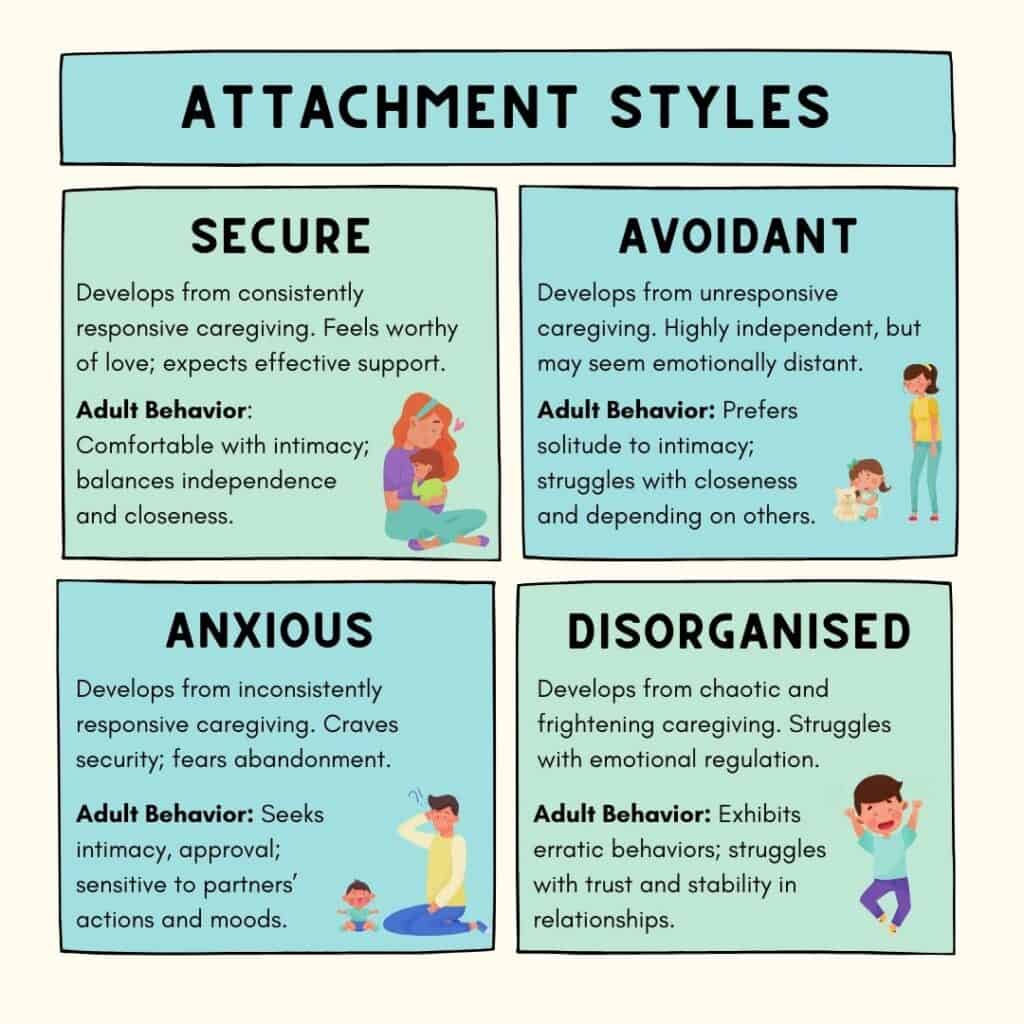I was thinking about this whole “demand-withdraw” thing today. It’s something that happens in relationships, and it’s been on my mind lately because I see it in my own life, to be honest. And it made me want to write it down and share it with you guys, it’s quite interesting.

So, picture this: You’re in a relationship, right? And there’s this pattern that starts to emerge. One person, let’s call them the “demander,” starts making requests or bringing up issues. They want to talk about things, make changes, resolve problems, all that good stuff. But the other person, the “withdrawer,” they kind of shut down. They avoid the conversation, change the subject, or just straight-up leave the room. It’s like they put up a wall, and the demander is left banging their head against it. For example, my wife asked me what I think of the new paint for our bathroom, and to be honest, I just don’t really care at all, so I responded I don’t know and walked away.
I tried to learn more about it, seems like some people call it “active listening.” You basically repeat back what the other person said, just to make sure you got it right. And then you try to figure out what they’re feeling. It’s like being a mind reader, but in a good way.
Here is how I started to get into it. First, I started to noticed this pattern in my own relationship. My wife and me, we’ve been together for years, and we’re pretty good at communicating, most of the time. But there are moments when I could see this demand-withdraw thing happening. She’d bring something up, and I’d just shut down, mostly because I don’t really care. Not because I didn’t want to deal with it, but because I just couldn’t get myself to engage.
So, I started to do some digging. I read some articles, watched some videos, you know, the usual. And I realized that this is a pretty common thing. It’s not just me and my wife. It happens to a lot of couples. And it’s not a good thing. It can lead to all sorts of problems, like resentment, frustration, and just a general feeling of disconnection.
I started to tried to change things. It wasn’t easy, to be honest. It’s like trying to break a bad habit. But I started to make an effort to actually listen when my wife brought something up. Even if I didn’t really want to. And I tried to express my own feelings and needs, too. Instead of just shutting down, I tried to explain why I was feeling that way. For example, my wife kept nagging me to talk about the paint, and I had to explain to her that I literally don’t care about it, I trust her taste, and she can pick whatever color she likes.

It’s a work in progress, I have to say. But I started to see some changes. We started to have better conversations. We started to understand each other better. And we started to feel more connected. It’s not perfect, but it’s definitely better than it was before.
Here are some of the things I tried:
- Paid more attention: When my wife wanted to talk, I tried to really listen, even if it was hard.
- Spoke up more: Instead of just shutting down, I tried to explain how I was feeling.
- Stayed in the conversation: Even when I wanted to run away, I forced myself to stay and talk things through.
- Took breaks: If things got too heated, we’d take a break and come back to it later, after calming down.
- Remembered the good stuff: I tried to remember why we’re together in the first place, and that helped me stay motivated to work things out.
So, yeah, that’s my experience with the demand-withdraw pattern. It’s not easy to deal with, but it’s definitely something you can work on. And it’s worth it, because a good relationship is worth fighting for, you know?











